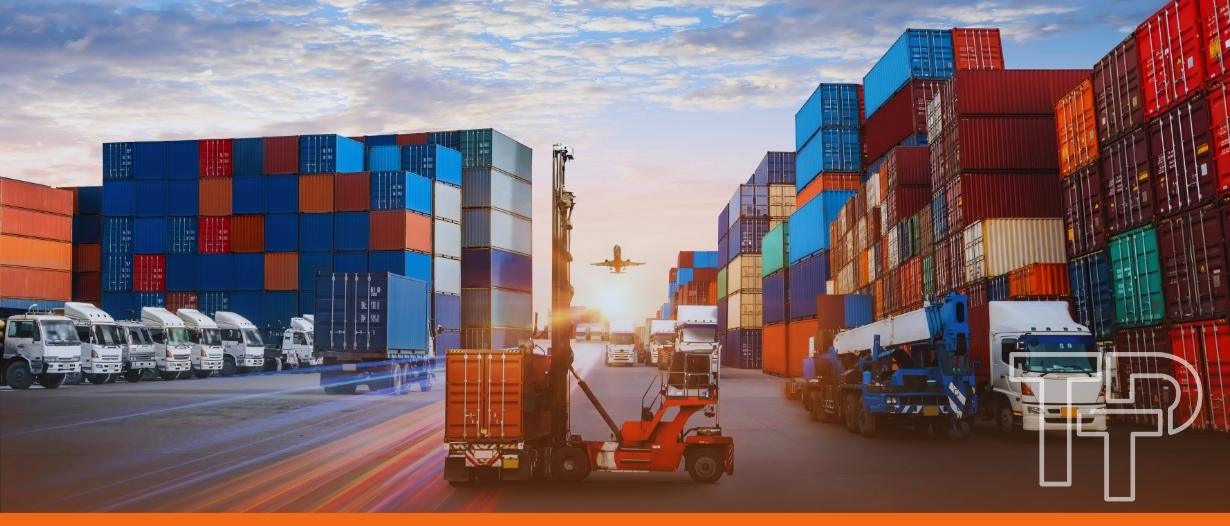VIDEO | BAFT CEO: Charting the course for transaction banking in a fractured world
Tod Burwell
Jun 06, 2025
 Nigel Teoh
Apr 09, 2025
Nigel Teoh
Apr 09, 2025

DHL, a global logistics company, has released its Trade Atlas 2025: Mapping the shifting landscape of global trade.
Written in collaboration with researchers from NYU Stern School of Business, the 292-page report aims to guide business leaders and policymakers through global trade dynamics by providing context for the forces driving the global economy.
Both the report and its interactive webpage accompaniment provide many valuable insights. These are our top takeaways.
Donald Trump’s election into a second term as the President of the USA has brought an increase in protectionist rhetoric and made tariffs and trade policy a renewed topic of mainstream conversation.
Despite the uncertainty that President Trump’s chaotic barrage of tariff threats has brought to the global economy, trade growth remains resilient, according to the report. The report’s baseline forecast (which covers a scenario where some, but not all of the Trump Administration’s proposed tariffs are implemented) projects global merchandise trade volumes to grow at 3.1% annually between 2024 and 2029, slightly faster than in the previous decade (2.0%)
Even in the report’s extreme tariff scenario (where all of the proposed US tariffs come into force, including up to 45% on China and 15% globally) global trade is expected to grow, though at a slower rate (around 9-10% lower by 2031 compared to baseline).

Subsequently, those businesses that operate in tariff-heavy environments must contend with the increased import costs that make their products less competitive both at home and abroad. Many of these costs wind up being thrust on consumers who are ultimately the ones to bear the burden of higher prices, reducing purchasing power and limiting economic mobility.
The disparity is particularly stark in the agricultural and manufacturing sectors, where developing nations often face tariffs averaging nearly 20% under Most-Favoured-Nation (MFN) treatment.
According to the UNCTAD report, agriculture and manufacturing are some of the most heavily tariffed sectors globally.
While developed nations often apply zero tariffs on raw products they do not produce, they tend to maintain prohibitively high tariffs on processed goods. For instance, dairy, meat, and sugar products frequently face tariff peaks exceeding 15%, particularly in South Asia, Africa, and select developed markets.
Manufacturing, too, has seen mixed trends. While global manufacturing tariffs have generally declined over the past decade, they remain relatively high in South Asia and Africa, averaging around 8%. In contrast, developed economies apply much lower tariffs, averaging just 2%.
Notably, textiles and apparel continue to face some of the highest tariff barriers, with import duties hovering around 6%. Given the importance is textile production for many developing economies like Bangladesh, these higher duties can significantly hamper their competitiveness.

This raises the question of how policymakers in these nations should react. On the one hand, tariffs provide revenue and protect domestic industries from foreign competition, but on the other, excessive duties limit development by making it harder for businesses to integrate into global networks.
According to the report, governments should explore ways to gradually reduce tariff barriers while diversifying revenue sources. One way to do this would be to structure trade agreements so that they prioritise fair market access while adapting domestic policies that support industrialisation.
Addressing tariff escalation must also be a priority. By reducing duties on processed goods, developing economies can incentivise local value-added production, creating jobs and boosting overall economic resilience.
—
Tariffs, which find themselves back in the global spotlight following Trump’s election victory in November, remain a contentious issue and the latest UNCTAD Global Trade Update reminds us that tariff policies have far-reaching consequences.
As trade agreements shift and tariff structures evolve, policymakers have a responsibility to understand the dynamics at play in order to create a trade environment that allows businesses and investors in their countries to stay ahead.

Tod Burwell
Jun 06, 2025

Carter Hoffman
Jun 06, 2025
Trade Treasury Payments is the trading name of Trade & Transaction Finance Media Services Ltd (company number: 16228111), incorporated in England and Wales, at 34-35 Clarges St, London W1J 7EJ. TTP is registered as a Data Controller under the ICO: ZB882947. VAT Number: 485 4500 78.
© 2025 Trade Treasury Payments. All Rights Reserved.